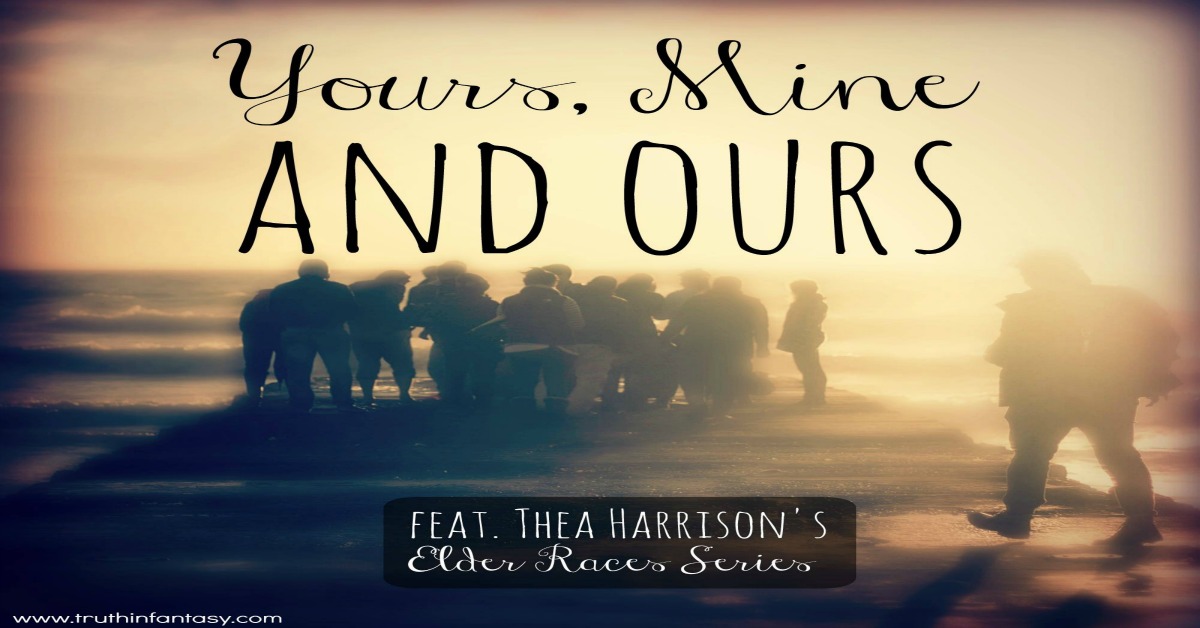In book four of Thea Harrison's Elder Races series, Oracle's Moon, the power of the Oracle of Delphi has passed to a human witch who lives in Kentucky. Well, why the hell not? It's paranormal fantasy, after all, and Thea Harrison has an exceptionally rich imagination. Anyway, the way the Oracle works is very interesting and instructive. Those seeking to consult with the Oracle come as supplicants, accepting what is offered. There is no immediate quid pro quo at the time of the consultation, but the supplicant is expected to make a donation to the upkeep and maintenance of the witch to whom the Oracle’s power has passed. The elements of this exchange that I found fascinating were the concepts of attraction rather than promotion, the imperative of the supplicant to seek an audience and the requirement to make a pilgrimage of sorts to do so, that the value of the exchange is left to the supplicant to determine, and that it is up to the seeker to do something good with what the Oracle offers. Or not.
In our world today, where we are constantly bombarded with advertising, living in a culture that encourages us to scream, "Look at me, look at me!" it's hard to get noticed or to notice anything else in return. One does not have to be diagnosed with ADHD, as I am (for which I am quite grateful, thank you very much, but more about that another time, perhaps) to get serious whiplash trying to keep up with all that is out there vying for our attention. We live in a material world that is heavily promoted--by mad men selling big food and big pharma, by multinational corporations wanting us to buy their products and services, by the need to keep up with the Kardashians, or at least with the neighbors. Everything is promoted, nothing is off limits, including yeast infections, erectile dysfunction, hemorrhoids and painful intercourse after menopause. Really?!
So the idea of attraction rather than promotion espoused by the Oracle is an outlier. In the book, Oracle's Moon, the Oracle has just finished putting up a basic website, explaining how things work. And, possibly because this witch with the prophetic powers wasn't out shilling her wares (the website wasn't really cutting it), the poor thing had fallen on particularly hard times. But even though what she offered could have been abused or exploited, Grace, the current Oracle, never thought to do so, because of the tradition of supplication, attraction and offering of the Delphic Oracle. She upheld the honor and tradition of the Oracle, even when it did not serve her.
We can learn a thing or two from this model, seems to me. There's a whole lot of expectation in the world today from people demanding help—of the magic wand variety. There's a pill for every ill out there, we can get anything we want delivered the next day (and Amazon and Walmart are working hard to make that instant gratification even faster), and no one wants to work too hard for anything. Grace, on the other hand, explains to one of the Oracles "clients" that it is incumbent on the supplicant to make the journey, ask the question, process the information and then do something productive with what they learn.
This is the difference between buying prepared food and making it yourself, even if you didn't grow or hunt the raw materials. How many of us do that these days? Not me, I'll cop to that right here and now. In fact, while I made the meatloaf from scratch tonight, it was only because I couldn't find a ready-made one at the store that usually carries them. On the other hand, I'm a big proponent of analysis and synthesis, as well as the notion that we value that which we have to work for. So I’m a living, breathing contradiction. Or a hypocrite, take your pick.
Which leads to the question of value. Can you imagine a society where the value of goods and services is determined by the buyer rather than the seller--after the service has been received? I'm thinking that isn't going to go too well for the seller. But that could be my New York talking. I might feel differently if I were from Minneapolis. It is unthinkable that the cost or price not be determined up front—although there are little pockets of experimentation out there trying on this buyer-determined value. I had lunch at a Panera restaurant once in Portland, OR, where one pays what one can—the idea being that those who can pay more than the value of the products received do so so that those who can afford less can still eat there. I’m not sure how it all turned out, but it was an interesting idea. In the book, the Oracle was getting stiffed, more often than not, until some powerful entities sat up and took notice and began to enforce the donation-after-the-fact aspect of consulting an oracle.
I loved the values and ideas promoted in this book. They made me think and long for a world where there were fewer folks shouting, “Look at me” and more people whispering, “Please connect with me.” A world where we look out for each other and happily pay a fair price for value received, rather than everyone trampling each other to get the early bird discount like it was Black Friday at 6:00 AM. I love the idea of deciding for myself what I want and what I value, instead of wondering whether my subconscious has been manipulated by subliminal messages I have no hope of discerning, turning me into a lemming falling off the nearest cliff.
I love that my beloved fantasy novels make me think about all of this, and entertain and uplift me along the way. I love the seeking, and the finding even more so. Cause I know just where to look. Look at me!



















